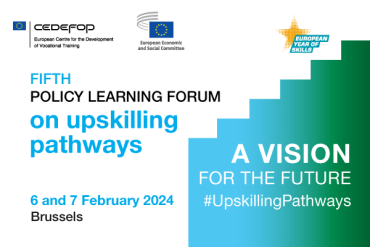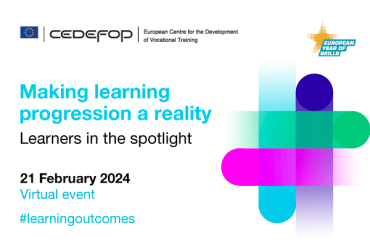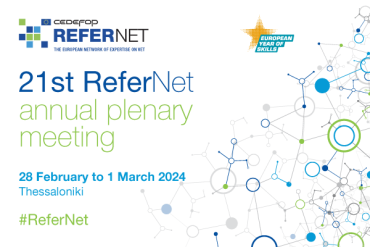|
 Margaritis Schinas, Vice President, European Commission, took office as Vice-President for Promoting our European Way of Life in the Von der Leyen Commission in December 2019. Margaritis Schinas, Vice President, European Commission, took office as Vice-President for Promoting our European Way of Life in the Von der Leyen Commission in December 2019.
In this capacity, he oversees the EU’s policies for migration, security union, social rights, skills, education, culture, youth, health and dialogue with churches, religious associations and non-confessional organisations.
View moreMr Schinas started his career in the European Commission in 1990. He also served as a Member of the European Parliament, from 2007 until 2009. Upon the completion of his parliamentary term of office, he returned to the European Commission and held various senior positions.
In 2010, President Barroso appointed Mr Schinas as Deputy Head of the Bureau of European Policy Advisers. Later he served as Resident Director and Head of the Athens Office of the European Commission's Directorate‑General for Economic and Financial Affairs (DG ECFIN). In 2014, President Juncker appointed Mr Schinas as the European Commission’s Chief Spokesperson.
Margaritis Schinas holds an MSc on Public Administration and Public Policy from the London School of Economics, a Diploma of Advanced European Studies on European Administrative Studies from the College of Europe in Bruges and a Degree in Law from the Aristotelean University of Thessaloniki.
|
|
 Dragoș Pîslaru – MEP, Chair of the EMPL Committee Dragoș Pîslaru – MEP, Chair of the EMPL Committee
Dragoș Pîslaru is a Romanian economist and former Labour and Social Affairs Minister in the 2016 government. He is a member of the European Parliament since 2019 on behalf of REPER, affiliated to the European political family Renew Europe and Chair of the Committee on Employment and Social Affairs.
View moreHe was the co-rapporteur of the Recovery and Resilience Facility (RRF), the largest financial instrument created by the European Union for the economic recovery of the Union after the pandemic and pushed for the creation of the social and children & youth pillars of the RRF.
As Chair of the EMPL Committee, Mr Pîslaru has spearheaded efforts to address pressing social and employment challenges facing the European Union. His leadership has been instrumental in fostering dialogue among MEPs, policymakers, and stakeholders to develop policies that prioritize children and youth, skills development, job creation and social inclusion.
Dragoș has been a strong supporter of the Child Guarantee and he is leading the Working Group on monitoring the implementation of Children Guarantee of the Parliament, a new permanent entity of the European Parliament.
He has demonstrated a steadfast commitment to championing the interests of youth and working towards a brighter future for the next generation, influencing EU legislation and the European Year of Youth in 2022.
Dragoș holds an MSc in International Relations from the London School of Economics and Political Science and a PhD in Economics from the National Institute of Economic Research, within the Romanian Academy.
Mr Pîslaru has been named the second most influential MEP on social policies (EU Matrix, 2023) and the most influential MEP on economic policies (VoteWatch.eu, 2020).
|
|
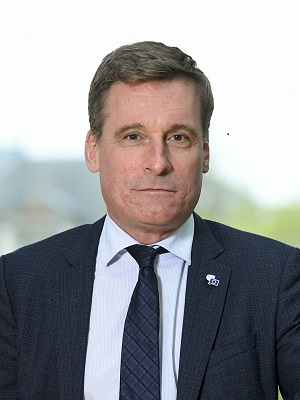 Oliver Röpke was elected as the president of the EESC in April 2023. Oliver Röpke was elected as the president of the EESC in April 2023.
Member of EESC since 2009, Mr Röpke was the president of the EESC Workers' Group, a member of the EESC Bureau and rapporteur of many EESC resolutions and opinions on employment and social policy, single market and innovation.
View moreMr Röpke headed the Brussels office of the Austrian Trade Union Federation (ÖGB) and took on several senior positions including as ÖGB representative to the EU institutions, the Executive Committee of the ETUC, and an advisory member of the ÖGB federal executive board. Mr Röpke has a legal background and holds a law degree from the University of Vienna.
|
|
 Jürgen Siebel, Executive Director of Cedefop, joined Cedefop from the private sector in September 2019. Jürgen Siebel, Executive Director of Cedefop, joined Cedefop from the private sector in September 2019.
As Executive Director, he is responsible for managing the Agency’s operations in accordance with the strategic direction of its tripartite Management Board.
View moreJürgen has a background in human resources management with particular emphasis on learning and education, the strategic development and roll-out of work-based vocational education and training programmes, as well as related corporate social responsibility initiatives.
In this context he has also collaborated with institutional actors at national, European and global levels.
Before joining Cedefop in Thessaloniki, Jürgen served for 20 years in various leading operational and strategic HR roles in Siemens AG, mostly as senior manager with global governance or business partner responsibilities.
Jürgen earned his MSc in economics at the University of Hamburg, and a PhD in business administration from the University of Vienna.
|
|
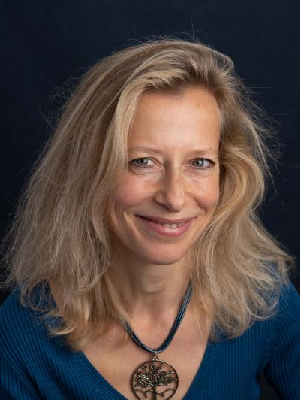 Ann Branch, Head of Unit at the European Commission, leads the European Commission team working on the EU Skills Agenda and the European Year of Skills in the department for Employment, Social Affairs and Inclusion. Ann Branch, Head of Unit at the European Commission, leads the European Commission team working on the EU Skills Agenda and the European Year of Skills in the department for Employment, Social Affairs and Inclusion.
She has worked for the EU institutions for over 20 years on a range of EU policies and funding programmes. Previous areas of work included social & inclusive entrepreneurship, social economy, the Erasmus+ programme, education for innovation, the cultural and creative sectors, European social dialogue and industrial relations.
View moreIn 2019 she was awarded the “Outstanding Public Social Intrapraneur of the Year Award” by the Schwab Foundation for Social Entrepreneurship. In 2021 she was included as ‘One of the top 100 women in social enterprise in 2021’ by Euclid Network.
|
|
 Mara Brugia is the Deputy Director of Cedefop, the European Centre for the Development of Vocational Training. Mara Brugia is the Deputy Director of Cedefop, the European Centre for the Development of Vocational Training.
She has been involved in vocational education and training (VET) since 1994. As Head of Department from 2004 to 2014, she managed teams of European experts working in research and policy analysis to support the development and implementation of the Union policy in the field of VET, skills and qualifications.
View moreShe holds a university degree in Economics and a Master in Economics, politics and law of the European Union. Her mother tongue is Italian (born in Perugia) and she is fluent in English, French, Greek and Spanish.
|
|
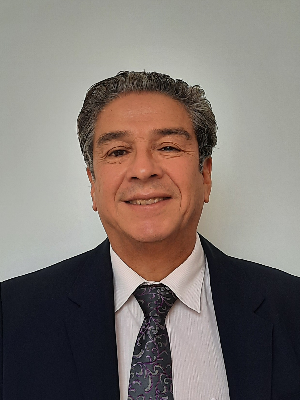 Gonzalo Caprirolo, head of the Unit of Analysis at the Ministry of Labor, Family, Social Affaires and Equal Opportunities of the Republic of Slovenia since 2019. Gonzalo Caprirolo, head of the Unit of Analysis at the Ministry of Labor, Family, Social Affaires and Equal Opportunities of the Republic of Slovenia since 2019.
He has coordinated and contributed to the development of a long-term skill forecast system in place in 2023. He is actively engaged in developing and implementing a project to set up a labour market platform aimed at facilitating matching in the labour market and providing relevant information to wide public and stake holders on labor market needs. Other activities include the development of scoreboards and tools to monitor, well-being, social and labor market developments.
View moreHe was Chief Economist at the Ministry of Finance and head of the Policy Analysis Unit which he helped to stablish. Gonzalo designed the current fiscal rule in place in Slovenia and contributed to a government’s debt portfolio management strategy leading to a substantial lower debt service costs. He was senior economist at the Institute of Macroeconomic Analysis and Development. He was consultant at the International Monetary Fund working on monetary policy implementation (Washington), and United Nations Development Program.
He has held various positions in professional bodies. He is currently member of the social Protection Committee’ s Minimum Income Network. He was head of the Slovene delegation to the Output Gap working group of the Council of Europe. He led the Slovene delegation to the Economic Policy Committee (EPC) of the Council of Europe and was Chairman of the EPC’s Labor Market Working Group. He was member of BRUEGEL steering committee (Brussels-based think tank). He represented Slovenia in the Sub-Committee on IMF issues of the Economic and Financial Committee of the Council of Europe and He was member of the ad-hoc FSC - Ageing & Financial Markets devoted to the analysis and implications of ageing populations for financial markets. He was delegate to the Economic Policy Committee and Working Party No1. at the OECD.
He holds a master’s degree from Columbia University (MIA), New York and master’s degree in Economics from El Colegio de Mexico, Mexico City.
|
|
 Slavica Alojzija Černoša has been working in education for almost 40 years. Slavica Alojzija Černoša has been working in education for almost 40 years.
She began her career as a professor at an upper secondary vocational school in Ljubljana and during this time completed her master's degree.
View moreIn 1994, she joined the National Institute for Adult Education (Andragoški center Slovenije) and led a project of study circles.
In 1998, she accepted the position of assistant director and head of the in-service department at the Institute of Education of the Republic of Slovenia.
During this time, she also completed her doctoral studies in management in education. In 2003, she joined the Ministry of Education, Science and Sport, where she is still employed.
She has been the head of the Department for Adult Education for 5 years and since 2012 head of the Department for Upper Secondary Education.
She knows the field of vocational education and adult education from the point of view of the provider, professional expert, and systemic point of view.
She was also a member of the working group at INES at the OECD for several years and currently is a member of AG EQF, AC VT, and DG VT on the EU level.
|
|
 Gina Ebner has been Secretary General of the European Association for the Education of Adults since 2007. Before, she worked as a language trainer in adult education and as a pedagogical manager for a vocational training institute in her native Austria. She moved to Brussels in 2002 where she was a project manager at EUROCADRES (Council for European professional and managerial staff) before she started at EAEA. From 2013 to 2019 she also served as president of the Lifelong Learning Platform. Gina Ebner has been Secretary General of the European Association for the Education of Adults since 2007. Before, she worked as a language trainer in adult education and as a pedagogical manager for a vocational training institute in her native Austria. She moved to Brussels in 2002 where she was a project manager at EUROCADRES (Council for European professional and managerial staff) before she started at EAEA. From 2013 to 2019 she also served as president of the Lifelong Learning Platform.
View moreShe has worked on issues such as gender equality, outreach, validation, life skills, benefits of lifelong learning and many more. She believes in adult learning and education as a central instrument to shape Europe’s future in a positive way and is enthusiastic in advocating for strong adult education communities, structures, policies and civil society.
|
|
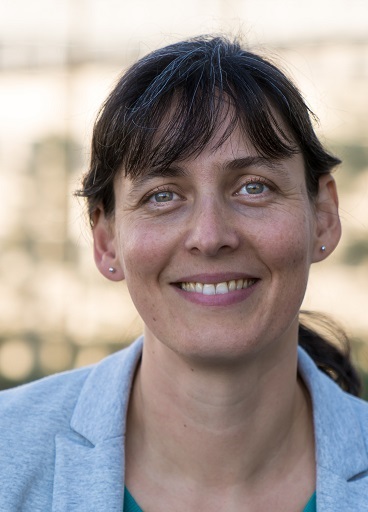 Cécile Hanoune is heading the unit responsible for Climate Governance, Plans & Mainstreaming in the European Commission. Cécile Hanoune is heading the unit responsible for Climate Governance, Plans & Mainstreaming in the European Commission.
The unit is closely involved in the implementation of the European Green Deal by working with Member States to ensure the development and implementation of robust national climate action policies and to promote sound climate action investments through various EU funding programmes.
View moreShe joined the Commission in 2005 and has worked in the Directorate General for Climate Action for 13 years, first on policy development and implementation of the EU Emission Trading System and then on the EU overall climate action strategies and the economic analysis underpinning them.
She started her career in the French government working on town planning and water resources. She has a broad experience in the development and implementation of public policies designed to manage scarce resources.
A French national, she holds academic degrees from the Strasbourg political science institute and ESSEC (Ecole supérieure des sciences économiques et commerciales) business school.
|
|
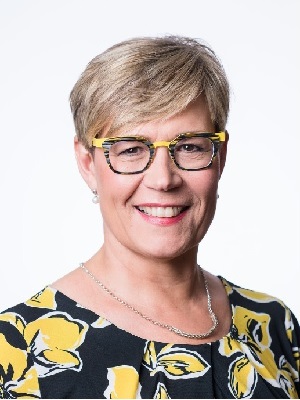 Riikka Heikinheimo is responsible for the competence and RD&I sector at the Confederation of Finnish Industries (EK). Riikka Heikinheimo is responsible for the competence and RD&I sector at the Confederation of Finnish Industries (EK).
Since January 2022 she has also worked as the chair of the Education and Training working group at Business Europe.
View moreRight kind on skill-set has become a major issue for many companies that are renewing their businesses - many times in a very disruptive environment. How to keep up with the development? Traditional education systems are built for a more rigid environment.
The task of Riikka Heikinheimo at EK is to follow and influence the politics and legislation in order to develop the Finnish public education and RD&I systems and private practices to meet the skill challenges such as green and digital transition.
Through her long practical experience in research and innovation strategies and implementation, combined with funding and management experience, she has developed a passion and a deep understanding for the nature and needs of a successful and productive education system and RD&I process.
Riikka Heikinheimo has a long experience as an executive director in both national public funding organizations and she has been a chair/member of many planning or advisory boards/committees developing different strategies related to education, research and innovations both at national and at European level and also at international level. She also serves several boards as a chair or a member.
|
|
 George Kostakis is coordinator of Cedefop's Department for VET and Qualifications. George Kostakis is coordinator of Cedefop's Department for VET and Qualifications.
Georges leads Cedefop's work on VET policies and systems which analyses developments and implementation of national VET policies in line with the VET Recommendation and Osnabruck Declaration.
View moreHis thematic expertise includes quality assurance in VET and international qualifications.
|
|
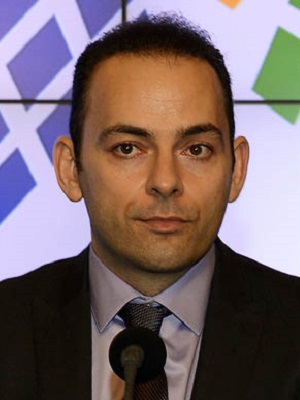 Ilias Livanos is a Cedefop expert at the Department for VET and Skills. Ilias Livanos is a Cedefop expert at the Department for VET and Skills.
Ilias, amongst his other duties at Cedefop, is the leader of the Skills forecast and the European skills index.
Ilias is an economist by training, with a PhD in employment research from the University of Warwick, where he worked for several years prior to joining Cedefop.
View moreHis expertise is in labour economics, education economics, and industrial relations. Ilias has published articles in various top-ranking journals.
|
|
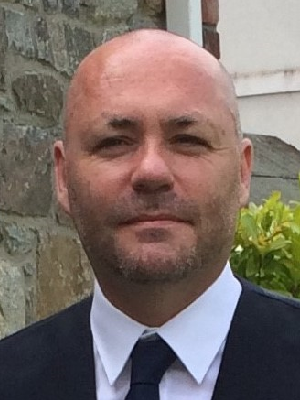 Seamus McGuinness is a Research Professor and the Research Area Co-ordinator for labour market research at the Economic and Social Research Institute. Seamus McGuinness is a Research Professor and the Research Area Co-ordinator for labour market research at the Economic and Social Research Institute.
Prior to joining the Institute, he held posts at Queens University Belfast, the Northern Ireland Economic Research Centre and the Melbourne Institute of Applied Economic & Social Research (University of Melbourne). He obtained his PhD in Economics from Queens University Belfast in 2003.
View moreHis published research covers the areas of labour economics and the economics of education. He has also published research in the areas of industrial relations, small business economics, regional economics, and the economics of constitutional change in Ireland. He is a research fellow in the Institute of Labour Studies (IZA) in the University of Bonn and an Adjunct Professor in the department of economics at Trinity College Dublin.
|
|
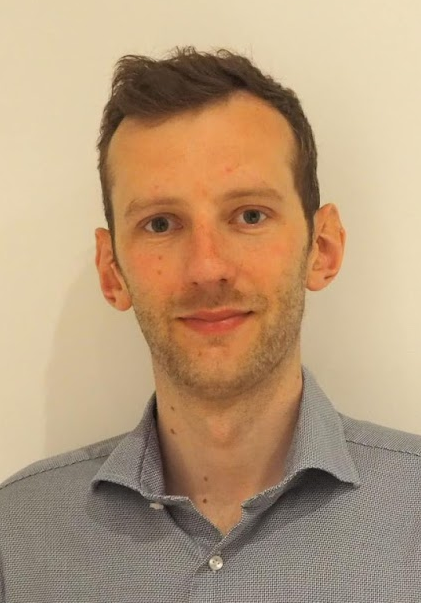 Bavo Meert is an international policy adviser on education and labour market at the Flemish Ministry of Education. Bavo Meert is an international policy adviser on education and labour market at the Flemish Ministry of Education.
At the Ministry of Education, he is one of the liaisons between Belgian and European stakeholders in education. He specializes in VET, adult education, lifelong learning, and skills.
|
|
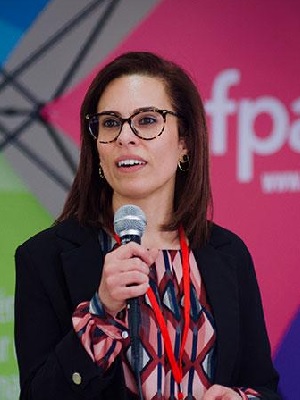 Giulia Meschino has been working for EVTA since June 2013, in charge of the development and implementation of the network’s strategy. Giulia Meschino has been working for EVTA since June 2013, in charge of the development and implementation of the network’s strategy.
Before moving to Belgium, she worked in France, United Kingdom, Malta, and Albania. She is a member and representative of the VET4EU2 platform and has acquired expertise on internationalisation and mobility of VET providers by leading the implementation of different EU funded projects on the topic.
View moreShe holds a master's degree in international relations and Diplomatic Affairs at University of Bologna, and an executive master's in management of international Organisations at the Solvay Business School.
|
|
 El Iza Mohamedou is the Head of the OECD Centre for Skills which supports countries to achieve better economic and social outcomes by taking a whole-of-government approach and engaging with stakeholders to develop and implement better skills policies. El Iza Mohamedou is the Head of the OECD Centre for Skills which supports countries to achieve better economic and social outcomes by taking a whole-of-government approach and engaging with stakeholders to develop and implement better skills policies.
She has more than 25 years of international experience working in the field and at headquarters with various international organisations and in the private sector.
View moreEl Iza holds a PhD in Economics, MBA in International Business and a BA in Economics.
|
|
 Robert Plummer is a senior adviser at BusinessEurope, responsible for issues concerning migration and mobility, education and skills, social dialogue and the European Labour Authority. Robert Plummer is a senior adviser at BusinessEurope, responsible for issues concerning migration and mobility, education and skills, social dialogue and the European Labour Authority.
Prior to joining BusinessEurope, Robert worked as a political adviser for the Alliance of Liberals and Democrats for Europe (ALDE) party.
View moreHe attended Keele University in the UK and holds a PhD in Industrial relations and human resource management, focusing on a comparative study of the demand for EU migrant workers in Sweden and the UK.
He also holds an MA in European industrial relations and human resource management, and a BA in Human geography and human resource management.
|
|
 Frank Pot is emeritus professor of "Social innovation of work and employment" at Radboud University Nijmegen and honorary advisor of the European Workplace Innovation Network (EUWIN). Frank Pot is emeritus professor of "Social innovation of work and employment" at Radboud University Nijmegen and honorary advisor of the European Workplace Innovation Network (EUWIN).
He is former director of TNO Work and Employment and had a chair by special appointment of "Work and technology" at Leiden University.
|
|
 Ms Anastasia Pouliou is a Cedefop Expert in qualifications and credentials - Future of VET. Ms Anastasia Pouliou is a Cedefop Expert in qualifications and credentials - Future of VET.
She is currently leading the Agency's research on Microcredentials for labour market education and training, learning outcomes and the Future of VET in Europe.
View moreShe is involved in other Cedefop activities (including the coordination of developments on national qualifications frameworks and the TVET-Interagency group on the Future of VET).
Before joining Cedefop she worked as an educational consultant in the Ministry of Education and Religious affairs and as a head of the European Affairs Unit in the Organisation for Vocational Education and Training (Greece).
She has performed senior management and national coordination on Europass and Leonardo da Vinci projects and has published influential articles in academic journals.
She has represented Cedefop as keynote speaker at high-level international events in Europe, USA and South Africa.
|
|
 Antonio Ranieri is Head of Department for VET and Skills at Cedefop. Antonio Ranieri is Head of Department for VET and Skills at Cedefop.
He manages a team of European experts investigating skills trends and changes in the worlds of work and support the development and implementation of the Union policy in the field of vocational education and training.
View moreThe Department work encompasses a wide range of research and policy analysis in two Cedefop strategic areas of operation, namely skills and labour market and learning and employability.
An economist by training, Antonio has taught regional economics at the University of Rome since 2002. He also lectured at the National High School of Public Administration on cost-benefit analysis and public expenditure.
Prior to joining Cedefop, in 2010, he was Head of Research and Studies at the public services authority of the Municipality of Rome. Until 2007, he was Head of Area at CLES, an independent centre of studies on labour market and economic development based in Rome.
|
|
 Lidia Salvatore is expert for adult learning and continuing vocational training at Cedefop and is responsible for Cedefop work on empowering adults through upskilling and reskilling pathways and on CVET. Prior to joining Cedefop Lidia worked as a research officer in Eurofound, in the field of youth employment policies. Lidia Salvatore is expert for adult learning and continuing vocational training at Cedefop and is responsible for Cedefop work on empowering adults through upskilling and reskilling pathways and on CVET. Prior to joining Cedefop Lidia worked as a research officer in Eurofound, in the field of youth employment policies.
|
|
 Manuel Souto-Otero is Professor at the School of Social Sciences, Cardiff University and Senior Professorial Fellow at the Singapore University of Social Sciences, currently on secondment with ICF. Manuel Souto-Otero is Professor at the School of Social Sciences, Cardiff University and Senior Professorial Fellow at the Singapore University of Social Sciences, currently on secondment with ICF.
He has published widely in the areas of education and labour markets, and is currently researching a variety of aspects related to digitalisation and the future of work.
View moreHe was been involved in the preparation of Cedefop's ESJS2 and is currently Co-Principal Investigator in the project "Digital Disruption and the Future of Work: Reimagining Education, Skills and Employability" an in international research programme dedicated to understanding the future prospects for human augmentation, social inclusion and shared prosperity, funded by Skills Futures Singapore.
He has previously undertaken a large number of research projects on education issues for European institutions (the European Commission, European Parliament, Cedefop), the OECD, UNESCO, national governments internationally, think-tanks and third sector organisations. He is an Associate Editor of the Journal of Education and Work and an Executive Editor of the British Journal of Sociology of Education.
|
|
 Jacqueline Tanzer trained as a graphic designer and competed in Graphic Design Technology at the EuroSkills Competition 2014 and the WorldSkills Competition 2015. Jacqueline Tanzer trained as a graphic designer and competed in Graphic Design Technology at the EuroSkills Competition 2014 and the WorldSkills Competition 2015.
This marked the start of her active engagement for VET.
View moreFrom 2017 to 2022 she was a representative for Europe on the WorldSkills Champions Trust, a group of past competitors that work together to expand the WorldSkills movement and promote the importance of skills. She is also an entrepreneur, running her own graphic design business.
|
|
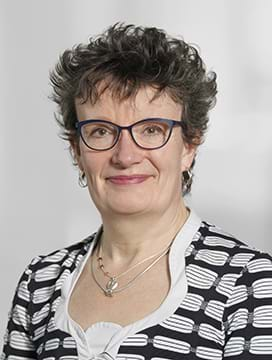 Anja Trier Wang is Leading Senior Adviser on VET at DI – Confederation of Danish Industry and has more than 20 years of experience in representing employers’ views on Education and training policies in Denmark as well as on European level. Anja Trier Wang is Leading Senior Adviser on VET at DI – Confederation of Danish Industry and has more than 20 years of experience in representing employers’ views on Education and training policies in Denmark as well as on European level.
Anja represents BUSINESSEUROPE in the EQF Advisory Group and participates in educational committees and social dialogue in several industrial sectors.
View morePrior to joining DI Anja held positions in the Danish Parliament and the Ministry of Education as adviser on European affairs and Education.
She holds an MA in Law from University of Aarhus and a postgraduate Degree in International Relations from University of Amsterdam.
|
|
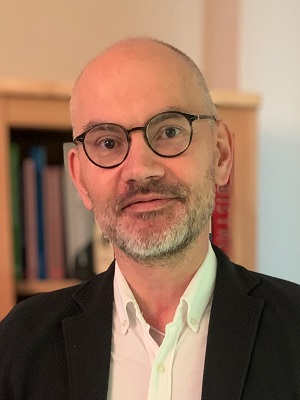 Jasper Van Loo is coordinator of Cedefop’s department for VET and Skills. Jasper Van Loo is coordinator of Cedefop’s department for VET and Skills.
He currently coordinates the labour market and skills analysis work of the agency. He is also part of the team investigating EU skills trends using online job vacancies.
View moreHe has a master degree in quantitative and general economics and holds a Ph.d. in social sciences.
As a researcher and project manager at the Dutch research centre for education and the labour market (ROA) Jasper led research projects on labour market issues, skills, employability and obsolescence of knowledge.
He also worked on HRD and HRM, taking an economic perspective to human resources issues. Jasper started working for Cedefop in 2007. He led the centre’s early work on skill mismatch, coordinated the centre’s work on national VET systems and policies for several years, and led the centre’s skills governance work.
|
|
 Patricia Velicu is Senior Policy Advisor and Head of Collective Bargaining and Social Policy Coordination at IndustriAll European Trade Union, the European Trade Union Federation representing industrial workers in metal, chemicals, textile and energy sectors. Patricia Velicu is Senior Policy Advisor and Head of Collective Bargaining and Social Policy Coordination at IndustriAll European Trade Union, the European Trade Union Federation representing industrial workers in metal, chemicals, textile and energy sectors.
She is also working on digitalisation and youth policies.
|
|
 Maarit Virolainen is a project researcher at the Finnish Institute of Educational Research, University of Jyväskylä Finland. Maarit Virolainen is a project researcher at the Finnish Institute of Educational Research, University of Jyväskylä Finland.
Her research focuses on learning from work experience, transitions from education to work, and comparing the development of the Finnish vocational education and training system in the Nordic and European context.
View moreShe has a PhD in adult education and has co-authored and published several articles on the transformation of learning in transitions to the 4th industrial revolution.
|
|
 Ludovic Voet has been re-elected Confederal Secretary at the ETUC Congress in Berlin, in May 2023. Elected Confederal Secretary of ETUC in 2019, he since coordinates the trade union pressure to obtain a Platform Work Directive and steers in European debate ETUC engagement to make climate action and Just Transition a reality for all workers. Ludovic Voet has been re-elected Confederal Secretary at the ETUC Congress in Berlin, in May 2023. Elected Confederal Secretary of ETUC in 2019, he since coordinates the trade union pressure to obtain a Platform Work Directive and steers in European debate ETUC engagement to make climate action and Just Transition a reality for all workers.
View moreFrom June 2023 onwards, Ludovic is responsible of ETUC area of work for an economy that works for the people and the planet. He will thus fight for a sustainable economic model, a reform of the economic governance and the EU Semester, fair taxation and an EU fiscal capacity and EU funds fit for the twin transitions. He will follow just transition, climate, energy and industrial policies as well policies of upskilling and reskilling of the workforce. He will also try to conclude the trade union fight for an ambitious Platform Work Directive.
|
|
 Loukas Zahilas is currently Head of the Department for VET and Qualifications at Cedefop. Loukas Zahilas is currently Head of the Department for VET and Qualifications at Cedefop.
He studied Chemistry and Information Technologies and he has a PhD in educational policies (qualifications frameworks).
His more than 32 years of professional experience in education and training were mainly acquired at the Greek Ministry of Education, the University of Athens and Cedefop.
View moreHe joined Cedefop in 2006 working initially as a senior expert on qualifications and the common EU tools and as of 2014 he is Head of the Department for VET and Qualifications.
He is a member of Cedefop’s management team and his department’s work is based on research and analyses providing evidence on policy developments and implementation as well as advice and support at European level.
It covers the Cedefop strategic area of ‘Shaping VET and Qualifications’ aiming at improving the overall transparency, relevance, quality and inclusiveness of VET by facilitating close interaction between initial VET, continuous VET and general and higher education to serve the skills needs of all age groups at all levels.
|
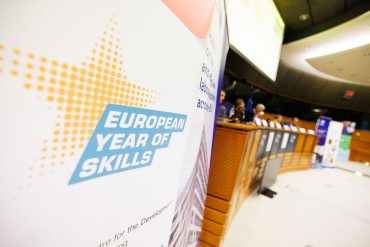
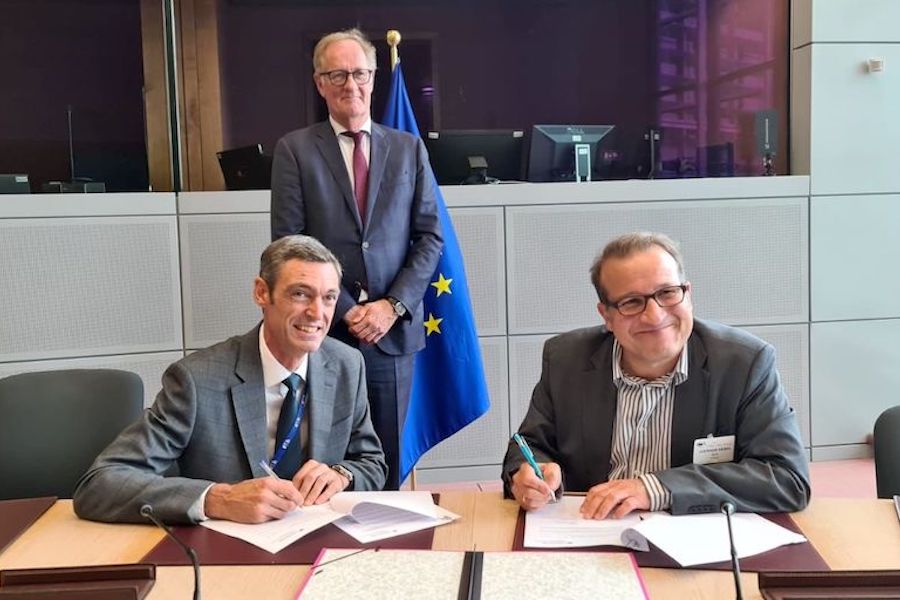
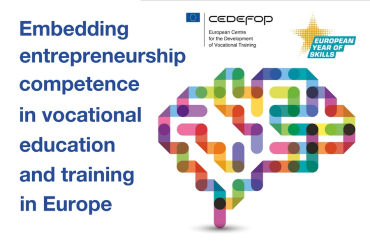
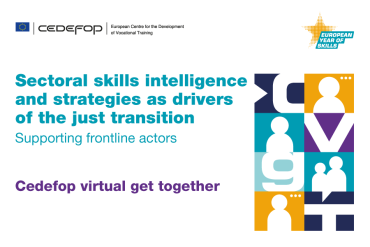
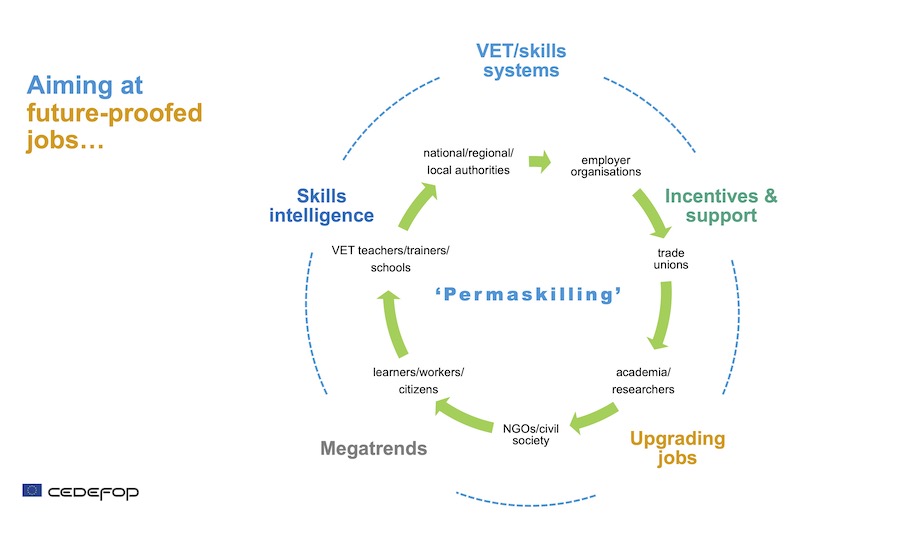
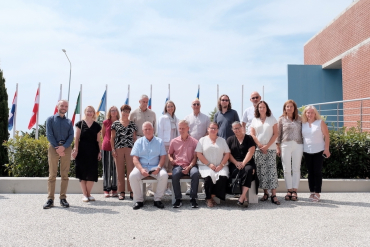
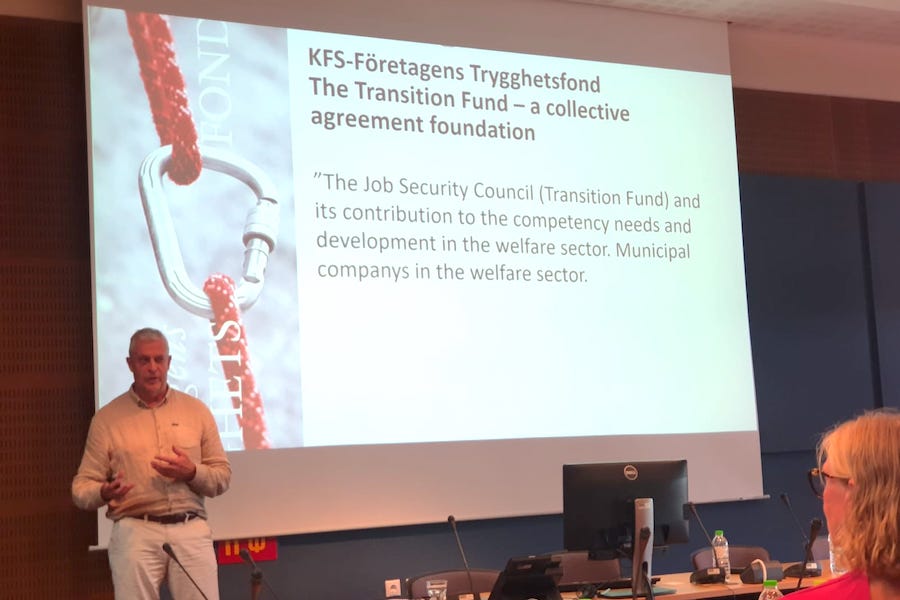
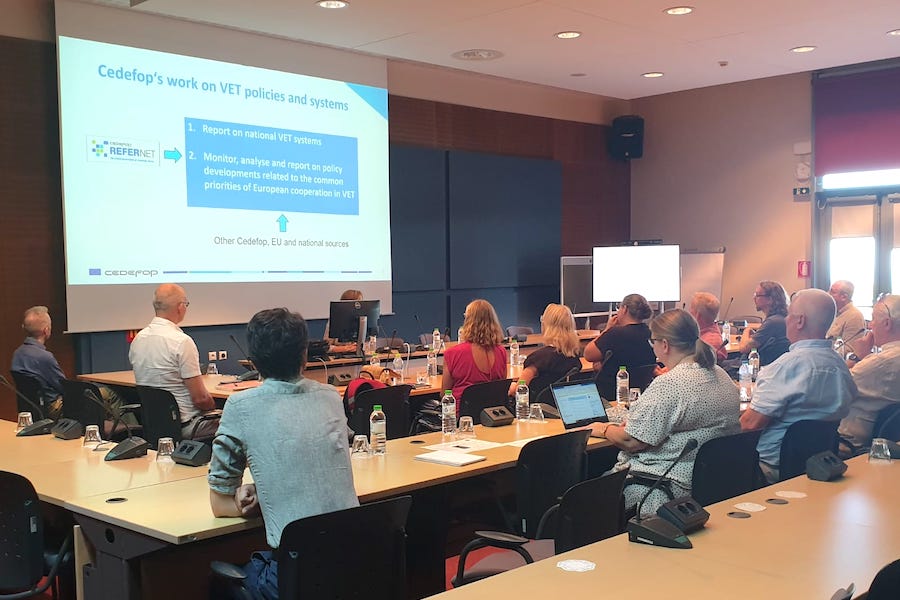



 Spotify
Spotify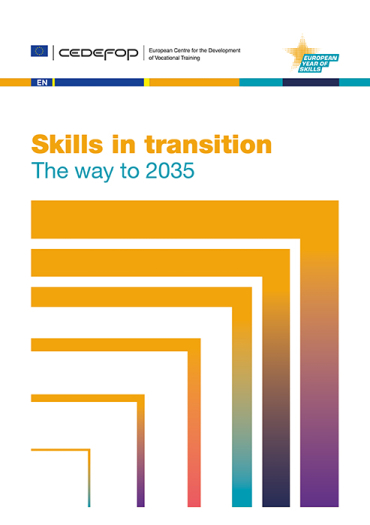
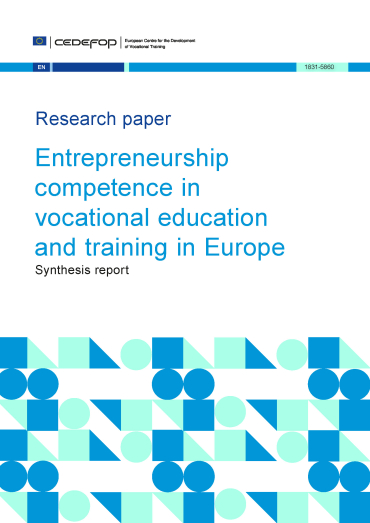
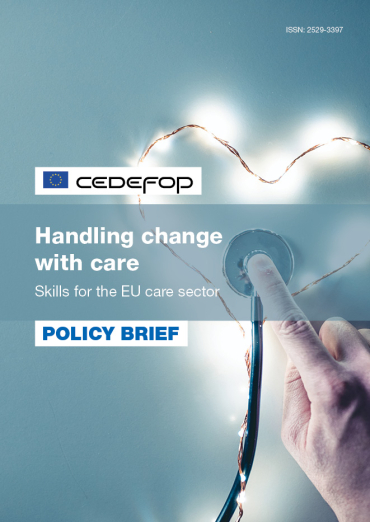
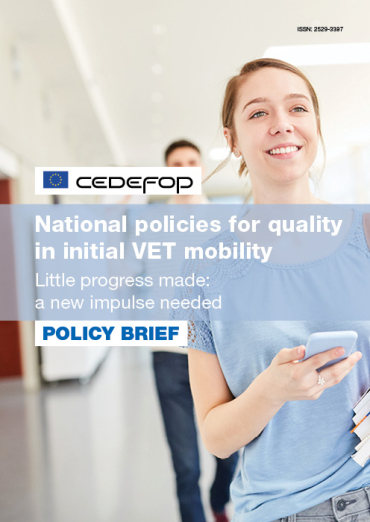
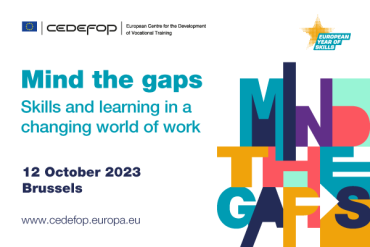
 Margaritis Schinas, Vice President, European Commission, took office as Vice-President for Promoting our European Way of Life in the Von der Leyen Commission in December 2019.
Margaritis Schinas, Vice President, European Commission, took office as Vice-President for Promoting our European Way of Life in the Von der Leyen Commission in December 2019. Dragoș Pîslaru – MEP, Chair of the EMPL Committee
Dragoș Pîslaru – MEP, Chair of the EMPL Committee Oliver Röpke was elected as the president of the EESC in April 2023.
Oliver Röpke was elected as the president of the EESC in April 2023. Jürgen Siebel, Executive Director of Cedefop, joined Cedefop from the private sector in September 2019.
Jürgen Siebel, Executive Director of Cedefop, joined Cedefop from the private sector in September 2019. Ann Branch, Head of Unit at the European Commission, leads the European Commission team working on the EU Skills Agenda and the European Year of Skills in the department for Employment, Social Affairs and Inclusion.
Ann Branch, Head of Unit at the European Commission, leads the European Commission team working on the EU Skills Agenda and the European Year of Skills in the department for Employment, Social Affairs and Inclusion. Mara Brugia is the Deputy Director of Cedefop, the European Centre for the Development of Vocational Training.
Mara Brugia is the Deputy Director of Cedefop, the European Centre for the Development of Vocational Training. Gonzalo Caprirolo, head of the Unit of Analysis at the Ministry of Labor, Family, Social Affaires and Equal Opportunities of the Republic of Slovenia since 2019.
Gonzalo Caprirolo, head of the Unit of Analysis at the Ministry of Labor, Family, Social Affaires and Equal Opportunities of the Republic of Slovenia since 2019. Slavica Alojzija Černoša has been working in education for almost 40 years.
Slavica Alojzija Černoša has been working in education for almost 40 years. Gina Ebner has been Secretary General of the European Association for the Education of Adults since 2007. Before, she worked as a language trainer in adult education and as a pedagogical manager for a vocational training institute in her native Austria. She moved to Brussels in 2002 where she was a project manager at EUROCADRES (Council for European professional and managerial staff) before she started at EAEA. From 2013 to 2019 she also served as president of the Lifelong Learning Platform.
Gina Ebner has been Secretary General of the European Association for the Education of Adults since 2007. Before, she worked as a language trainer in adult education and as a pedagogical manager for a vocational training institute in her native Austria. She moved to Brussels in 2002 where she was a project manager at EUROCADRES (Council for European professional and managerial staff) before she started at EAEA. From 2013 to 2019 she also served as president of the Lifelong Learning Platform. Cécile Hanoune is heading the unit responsible for Climate Governance, Plans & Mainstreaming in the European Commission.
Cécile Hanoune is heading the unit responsible for Climate Governance, Plans & Mainstreaming in the European Commission. Riikka Heikinheimo is responsible for the competence and RD&I sector at the Confederation of Finnish Industries (EK).
Riikka Heikinheimo is responsible for the competence and RD&I sector at the Confederation of Finnish Industries (EK). George Kostakis is coordinator of Cedefop's Department for VET and Qualifications.
George Kostakis is coordinator of Cedefop's Department for VET and Qualifications. Ilias Livanos is a Cedefop expert at the Department for VET and Skills.
Ilias Livanos is a Cedefop expert at the Department for VET and Skills. Seamus McGuinness is a Research Professor and the Research Area Co-ordinator for labour market research at the Economic and Social Research Institute.
Seamus McGuinness is a Research Professor and the Research Area Co-ordinator for labour market research at the Economic and Social Research Institute. Bavo Meert is an international policy adviser on education and labour market at the Flemish Ministry of Education.
Bavo Meert is an international policy adviser on education and labour market at the Flemish Ministry of Education. Giulia Meschino has been working for EVTA since June 2013, in charge of the development and implementation of the network’s strategy.
Giulia Meschino has been working for EVTA since June 2013, in charge of the development and implementation of the network’s strategy. El Iza Mohamedou is the Head of the
El Iza Mohamedou is the Head of the  Robert Plummer is a senior adviser at BusinessEurope, responsible for issues concerning migration and mobility, education and skills, social dialogue and the European Labour Authority.
Robert Plummer is a senior adviser at BusinessEurope, responsible for issues concerning migration and mobility, education and skills, social dialogue and the European Labour Authority. Frank Pot is emeritus professor of "Social innovation of work and employment" at Radboud University Nijmegen and honorary advisor of the European Workplace Innovation Network (EUWIN).
Frank Pot is emeritus professor of "Social innovation of work and employment" at Radboud University Nijmegen and honorary advisor of the European Workplace Innovation Network (EUWIN). Ms Anastasia Pouliou is a Cedefop Expert in qualifications and credentials - Future of VET.
Ms Anastasia Pouliou is a Cedefop Expert in qualifications and credentials - Future of VET. Antonio Ranieri is Head of Department for VET and Skills at Cedefop.
Antonio Ranieri is Head of Department for VET and Skills at Cedefop. Lidia Salvatore is expert for adult learning and continuing vocational training at Cedefop and is responsible for Cedefop work on empowering adults through upskilling and reskilling pathways and on CVET. Prior to joining Cedefop Lidia worked as a research officer in Eurofound, in the field of youth employment policies.
Lidia Salvatore is expert for adult learning and continuing vocational training at Cedefop and is responsible for Cedefop work on empowering adults through upskilling and reskilling pathways and on CVET. Prior to joining Cedefop Lidia worked as a research officer in Eurofound, in the field of youth employment policies.  Manuel Souto-Otero is Professor at the School of Social Sciences, Cardiff University and Senior Professorial Fellow at the Singapore University of Social Sciences, currently on secondment with ICF.
Manuel Souto-Otero is Professor at the School of Social Sciences, Cardiff University and Senior Professorial Fellow at the Singapore University of Social Sciences, currently on secondment with ICF. Jacqueline Tanzer trained as a graphic designer and competed in Graphic Design Technology at the EuroSkills Competition 2014 and the WorldSkills Competition 2015.
Jacqueline Tanzer trained as a graphic designer and competed in Graphic Design Technology at the EuroSkills Competition 2014 and the WorldSkills Competition 2015. Anja Trier Wang is Leading Senior Adviser on VET at DI – Confederation of Danish Industry and has more than 20 years of experience in representing employers’ views on Education and training policies in Denmark as well as on European level.
Anja Trier Wang is Leading Senior Adviser on VET at DI – Confederation of Danish Industry and has more than 20 years of experience in representing employers’ views on Education and training policies in Denmark as well as on European level. Jasper Van Loo is coordinator of Cedefop’s department for VET and Skills.
Jasper Van Loo is coordinator of Cedefop’s department for VET and Skills. Patricia Velicu is Senior Policy Advisor and Head of Collective Bargaining and Social Policy Coordination at IndustriAll European Trade Union, the European Trade Union Federation representing industrial workers in metal, chemicals, textile and energy sectors.
Patricia Velicu is Senior Policy Advisor and Head of Collective Bargaining and Social Policy Coordination at IndustriAll European Trade Union, the European Trade Union Federation representing industrial workers in metal, chemicals, textile and energy sectors. Maarit Virolainen is a project researcher at the Finnish Institute of Educational Research, University of Jyväskylä Finland.
Maarit Virolainen is a project researcher at the Finnish Institute of Educational Research, University of Jyväskylä Finland. Ludovic Voet
Ludovic Voet Loukas Zahilas is currently Head of the Department for VET and Qualifications at Cedefop.
Loukas Zahilas is currently Head of the Department for VET and Qualifications at Cedefop.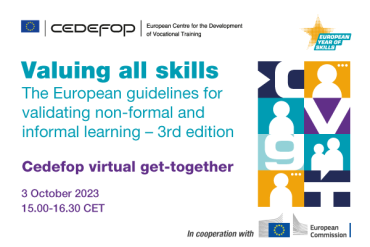
 Michela Bastianelli is a sociologist in organizational and labour market studies and holds a post degree qualification in management and development of human resources and structural funds. She is a researcher at ANPAL – The Italian National Agency for Active Labour Market Policies.
Michela Bastianelli is a sociologist in organizational and labour market studies and holds a post degree qualification in management and development of human resources and structural funds. She is a researcher at ANPAL – The Italian National Agency for Active Labour Market Policies. Aline Jürges has been working at the European Commission since 2001.
Aline Jürges has been working at the European Commission since 2001.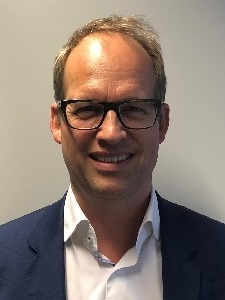 Koen Nomden is currently Team Leader for “Transparency and Recognition of Skills and Qualifications”, within the Skills Agenda Unit of the European Commission (DG Employment, Social Affairs and Inclusion).
Koen Nomden is currently Team Leader for “Transparency and Recognition of Skills and Qualifications”, within the Skills Agenda Unit of the European Commission (DG Employment, Social Affairs and Inclusion).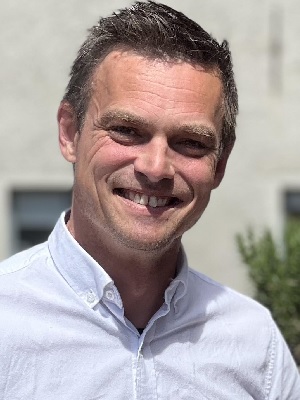 Johan Nordberg is involved in the Svensk industrivalidering in Sweden, a national system for validating skills that are critical for a sustainable and competitive production of goods and industrial services.
Johan Nordberg is involved in the Svensk industrivalidering in Sweden, a national system for validating skills that are critical for a sustainable and competitive production of goods and industrial services. Michelle Nugent-Considine is a tutor and RPL mentor with the Limerick and Clare Education and Training Board based in the Ennis Campus.
Michelle Nugent-Considine is a tutor and RPL mentor with the Limerick and Clare Education and Training Board based in the Ennis Campus. Maida Pieper is a project technician at Spanish Volunteering Platform (PVE).
Maida Pieper is a project technician at Spanish Volunteering Platform (PVE).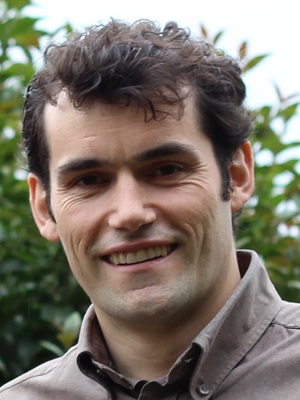 Ernesto Villalba-Garcia has worked at Cedefop since 2011.
Ernesto Villalba-Garcia has worked at Cedefop since 2011.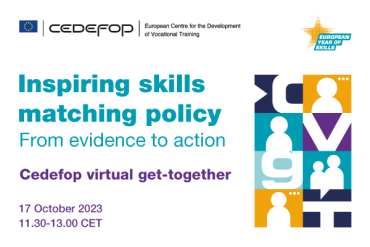
 Veerle De Keersmaecker is a policy advisor at VDAB (public employment service Flanders).
Veerle De Keersmaecker is a policy advisor at VDAB (public employment service Flanders). Noreen FitzPatrick is the Employee Development Manager in the Enterprise Employment and Skills unit in SOLAS, the Further Education Authority of Ireland.
Noreen FitzPatrick is the Employee Development Manager in the Enterprise Employment and Skills unit in SOLAS, the Further Education Authority of Ireland. Konstantinos Pouliakas is an Expert on Skills and Labour Markets at Cedefop.
Konstantinos Pouliakas is an Expert on Skills and Labour Markets at Cedefop. Despoina Valassi is social scientist and scientific associate in the Small Enterprises’ Institute of the Hellenic Confederation of Professionals, Craftsmen and Merchants (IME GSEVEE).
Despoina Valassi is social scientist and scientific associate in the Small Enterprises’ Institute of the Hellenic Confederation of Professionals, Craftsmen and Merchants (IME GSEVEE). Jasper Van Loo is coordinator of Cedefop’s department for VET and Skills.
Jasper Van Loo is coordinator of Cedefop’s department for VET and Skills. Leen Verachtert is policy advisor at VDAB (public employment service Flanders).
Leen Verachtert is policy advisor at VDAB (public employment service Flanders).